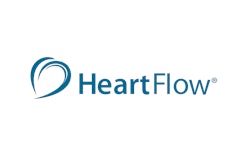
Cardiovascular software developer HeartFlow has touted the results of a new study that found the company's fractional flow reserve CT (FFR-CT) analysis software to be less costly than conventional stress testing for diagnosing coronary artery disease.
The study was published on December 14 in JAMA Network Open and looked at the cost-effectiveness of assessing coronary artery disease in patients using the following three diagnostic strategies:
- Functional testing (e.g. nuclear stress testing, stress echocardiography, or exercise treadmill testing)
- Coronary CT angiography (CTA) alone
- Coronary CTA with HeartFlow Analysis software.
A Markov microsimulation model utilizing patient data from the PROMISE trial found the pathway that included the HeartFlow Analysis was "dominant," defined as less costly and more effective, according to the company.
The authors based their clinical effectiveness judgment on lifetime rates of heart attack and death as well as efficacy of patient selection for invasive diagnostic coronary angiography and revascularization. Compared with stress testing, coronary CTA with HeartFlow Analysis increased the efficacy of selecting patients for invasive testing by 50%, noted HeartFlow.
In addition, patients diagnosed with coronary artery disease with coronary CTA and HeartFlow Analysis gained six months in quality-adjusted life years over those diagnosed through stress testing. The incremental cost-effectiveness ratio found the pathway with HeartFlow Analysis cost $767 less than stress setting and $1,461 less than CTA alone.
HeartFlow Analysis is a noninvasive test for patients with symptoms of coronary artery disease. The tool creates a 3D heart model based on standard coronary CTA imaging, then uses algorithms to stimulate blood flow and provide FFR-ct values in order to evaluate blockage.




















